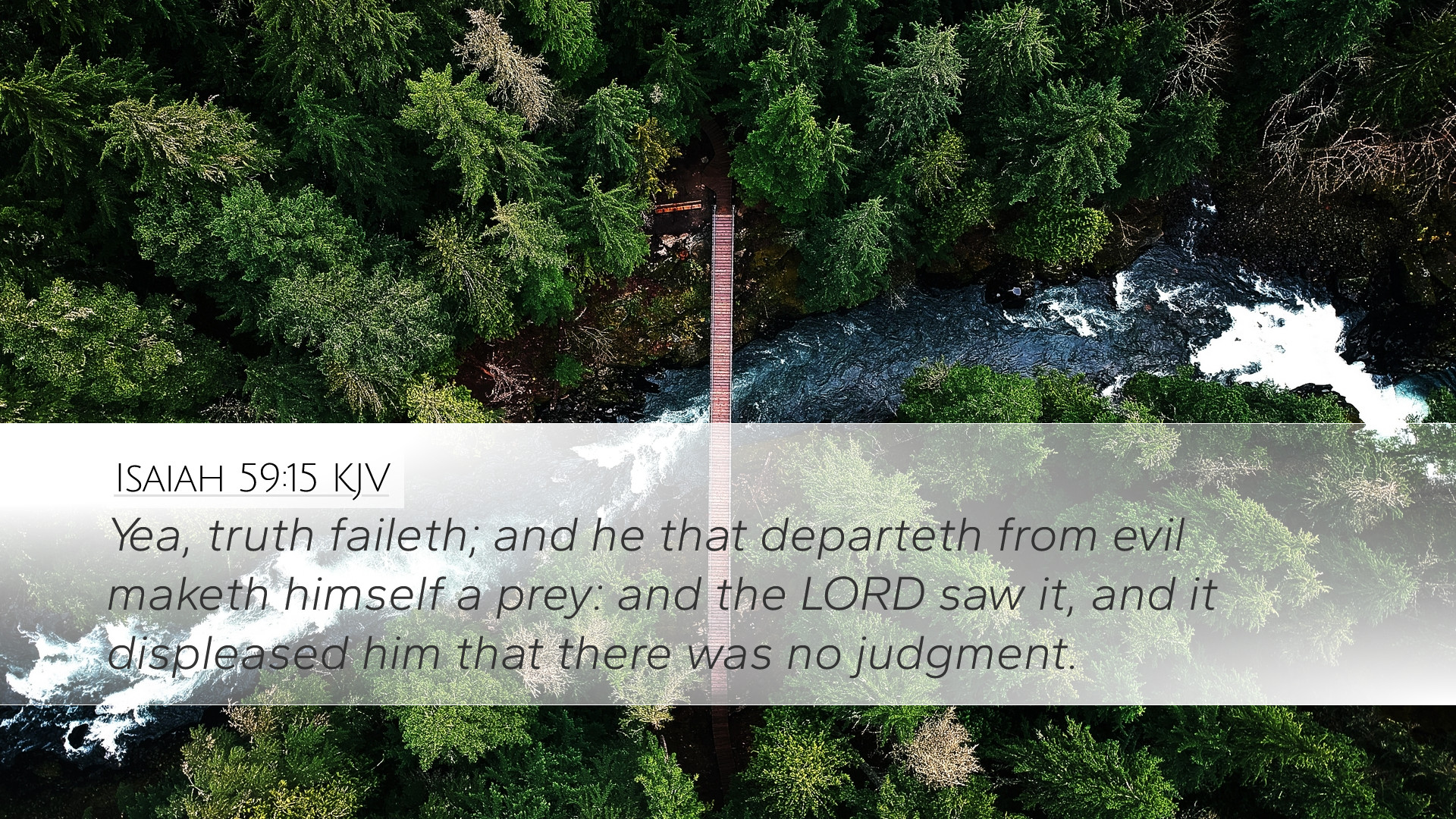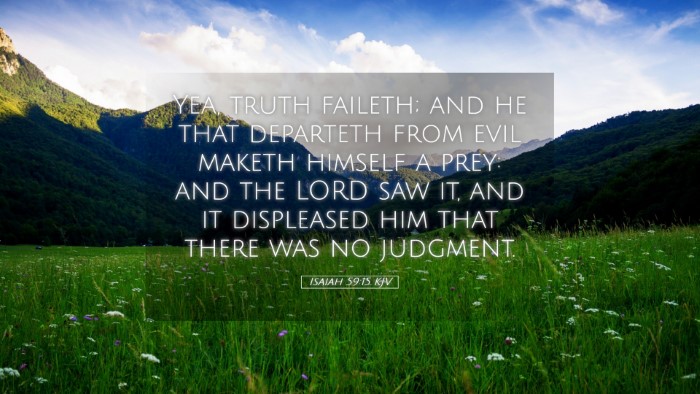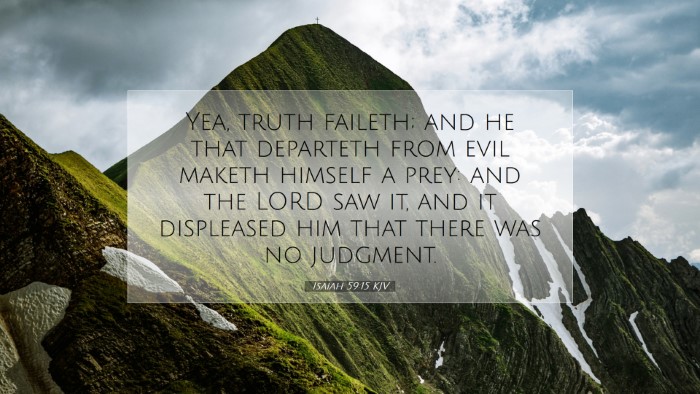Isaiah 59:15 - Commentary and Insights
Verse: "Yea, truth faileth; and he that departeth from evil maketh himself a prey: and the LORD saw it, and it displeased him that there was no judgment."
Contextual Background
Isaiah 59 serves as a powerful indictment of the spiritual and moral decay present in Israel. The nation, once chosen and blessed by God, faces the consequences of its abandonment of divine principles. This verse epitomizes the struggles confronting those who adhere to righteousness amidst a prevailing culture of corruption.
Insights from Matthew Henry
Matthew Henry emphasizes the state of truth in society, stating that truth has lost its value, and those who seek righteousness are often targeted. His interpretation suggests that adherence to truth and goodness in an evil world invites persecution.
- Truth’s Collapse: Henry points out that society's moral compass has become distorted. People no longer uphold truth, leading to a widespread ethical crisis.
- Consequences of Holiness: Those who strive to live righteously find themselves vulnerable. This highlights the challenges faced by believers who maintain their faith amid a surrounding culture that attacks virtue.
- God’s Displeasure: The divine observation of these circumstances does not go unnoticed. Henry notes that God's displeasure is evident when justice is not served, echoing the Old Testament's themes of divine justice.
Insights from Albert Barnes
Albert Barnes provides a deep analysis of the repercussions of sin on the community and individual levels. He correlates the failure of truth with the broader social and spiritual condition of Israel.
- Departure from Evil: Barnes discusses the idea that truly departing from evil becomes a form of vulnerability. Those who refrain from wrongdoing may find themselves preyed upon by the wicked, illustrating the harsh reality of moral integrity.
- No Judgment: A critical aspect of Barnes’ commentary is the absence of justice. He asserts that when truth and justice are absent, it reflects a divine silence—a lack of intercession for the people’s welfare.
- Divine Concern: Barnes highlights God’s grief regarding the moral state of humanity. This verse serves as a reminder that God is acutely aware of human trials and injustices.
Insights from Adam Clarke
Adam Clarke offers a detailed examination of the text, focusing on the implications of truth’s failure and righteousness’ cost. His commentary provides a pastoral and theological perspective.
- Philosophical Reflection on Truth: Clarke posits that truth failing signifies a deeper philosophical crisis within the society, one that challenges the core of human relations and divine purpose.
- Righteousness and Persecution: The theme of persecution for righteousness resonates through Clarke's work. He posits that to stand for good often encounters opposition, a sentiment echoed by the experiences of the prophets and Christ.
- God’s Response to Injustice: Clarke articulates God's displeasure with the absence of righteousness in the land. He suggests that divine intervention is prompted when society turns away from just principles.
Theological Reflections
Analyzing Isaiah 59:15 through the lens of these commentaries reveals several theological themes that are relevant to contemporary readers:
- Significance of Truth: The loss of truth is a grave matter, emphasizing the necessity of integrity within both personal and societal contexts.
- Cost of Righteousness: The verse serves as a reminder that following God’s ways can lead to challenges and persecution, underscoring the call for resilience in faith.
- Divine Justice: God’s involvement in human affairs remains a key theme. The text signifies that God notices the plight of those who pursue justice, and He is displeased when evil prevails.
Pastoral Applications
For pastors and church leaders, this verse provides a calling to uphold and proclaim truth amidst cultural degradation:
- Encouragement for the Faithful: Encourage congregants to remain steadfast in their commitment to righteousness, reassuring them that their struggles are seen by God.
- Responsibility for Justice: Pastors are called to be advocates for justice and truth, promoting ethical living within their communities.
- Prayer for Truth: Acknowledge the loss of truth in society and call the church to pray for a revival of righteousness both within and outside its walls.
Conclusion
Isaiah 59:15 serves as a poignant reminder of the struggles faced by those who cling to truth in a world that often opposes it. As scholars, theologians, and practitioners reflect on this verse, they are called to uphold justice, champion the cause of the righteous, and invite others to experience the transformative power of God, who sees and acknowledges our trials.


